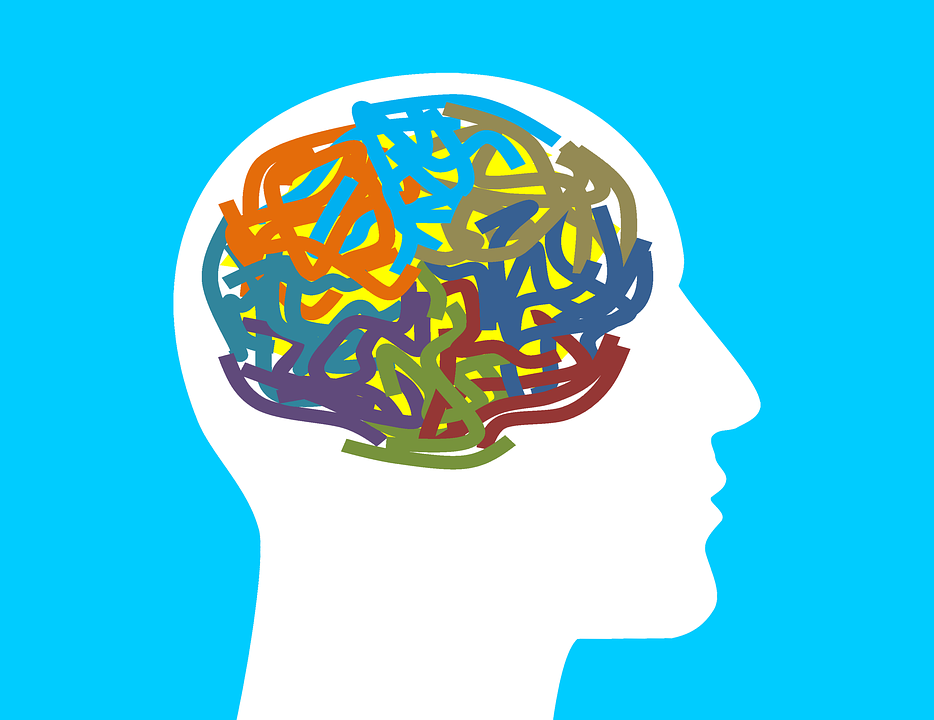The Significance of Mental Wellness: a Deep Study Counseling, Treatment, and Their Advantages
Mental health substantially shapes individual health, impacting thoughts, feelings, and actions. Counseling and treatment function as vital avenues for recovery and individual growth. They supply structured assistance, helping individuals browse life's challenges. Yet, numerous stay not aware of the certain kinds of treatment offered and their unique benefits. Recognizing these elements is very important for anybody thinking about expert psychological health support. What adheres to may brighten courses to strength and satisfaction that many forget.
Comprehending Mental Health And Wellness and Its Effect
Although psychological health is typically ignored, it plays an important role in total wellness and everyday functioning. It encompasses emotional, emotional, and social elements that influence just how people assume, really feel, and behave. An individual's mental health straight influences their ability to take care of stress and anxiety, connect to others, and choose. Poor psychological health can result in various problems, including stress and anxiety, clinical depression, and trouble in keeping connections, all of which can impede professional and individual growth.Furthermore, psychological health and wellness has significant ramifications for physical health and wellness. Persistent tension and neglected mental conditions can add to numerous physical conditions, such as heart condition and compromised immune reactions. Alternatively, positive mental health promotes resilience, making it possible for people to cope with life's challenges successfully. Recognizing mental health's importance is vital for fostering encouraging settings that promote psychological wellness, therefore enhancing the lifestyle for communities and people alike
The Various Kinds Of Therapy and Treatment
In the domain of mental health, numerous therapy and treatment types satisfy varied demands. Individual therapy techniques focus on personal problems via individually sessions, while team therapy dynamics foster shared experiences and support amongst participants. Understanding these modalities is necessary for choosing the ideal treatment for various difficulties.
Individual Therapy Strategies
Many private counseling approaches exist, each designed to address details psychological health worries and accommodate varying client needs. Cognitive Behavior Modification (CBT) focuses on recognizing and changing unfavorable thought patterns, while Psychodynamic Treatment checks out subconscious procedures and previous experiences. Humanistic Therapy stresses personal growth and self-actualization, cultivating a helpful environment. Interpersonal Therapy (IPT) targets connection concerns and communication patterns to boost psychological wellness. Additionally, Approval and Dedication Therapy (ACT) urges clients to accept their thoughts and feelings while committing to personal worths. Each technique provides special strategies and ideologies, enabling experts to tailor their techniques to the individual, thus enhancing the healing experience and advertising mental health recovery.
Group Treatment Characteristics
Group treatment characteristics include different therapeutic strategies that utilize the power of social connections and common experiences. This type of therapy frequently includes diverse groups, cultivating a safe setting for participants to reveal thoughts and feelings. Trick kinds of team treatment include assistance teams, which provide emotional support; process-oriented teams, concentrating on social interactions; and psychoeducational groups, aimed at presenting understanding regarding psychological wellness issues. The characteristics within these groups can enhance self-awareness, as members usually show on their behaviors in relation to others. Furthermore, group treatment promotes a feeling of belonging, reducing feelings of isolation. Through shared narratives and cumulative problem-solving, participants can establish coping approaches and get insights, inevitably adding to individual development and healing.
The Role of Counseling in Mental Health
Therapy plays a vital duty in mental wellness by providing different methods customized to individual needs. These approaches give professional guidance that can bring about significant renovations in psychological health. Comprehending the different kinds of counseling can help individuals make educated choices regarding their psychological wellness treatment.

Sorts Of Therapy Techniques
While different therapy approaches exist, each offers special techniques and insights right into psychological health treatment - Cognitive Behavioural Therapy. Among one of the most noticeable are cognitive-behavioral therapy (CBT), which concentrates on altering negative idea patterns; psychodynamic treatment, which checks out unconscious processes and childhood years experiences; and humanistic techniques, highlighting individual development and self-actualization. In addition, solution-focused short treatment focuses on discovering services in the here and now rather than diving into problems. Group treatment cultivates area and shared experiences, while household treatment addresses relational dynamics within familial structures. Each approach provides to various needs, straightening with individual preferences, issues, and healing objectives. Recognizing these techniques assists customers make notified selections regarding their psychological health journey and advertises reliable therapy customized to their distinct situations
Advantages of Expert Assistance
Numerous individuals gain from specialist advice in managing their psychological health and wellness challenges. Therapy provides a secure area for clients to discover their thoughts and feelings without judgment. This therapeutic environment fosters self-awareness, allowing people to recognize patterns in their actions and develop healthier coping approaches. Professional advice likewise provides accessibility to evidence-based techniques that can relieve signs of anxiousness, clinical depression, and other psychological health and wellness problems. Additionally, counselors can help in establishing practical objectives and provide support in achieving them, improving general health. The collaborative connection in between therapist and client is crucial, as it advertises responsibility and urges individual growth. Inevitably, professional advice plays a vital duty in steering psychological wellness journeys, causing boosted psychological durability and life satisfaction.
Benefits of Therapy: Recovery and Growth

How to Choose the Right Therapist or Therapist
Just how can one navigate the commonly overwhelming process of choosing the appropriate therapist or counselor? Determining individual requirements is important; individuals need to consider their particular issues, whether clinical depression, connection, or stress and anxiety difficulties. It is helpful to research numerous restorative methods, such as cognitive-behavioral therapy or psychodynamic treatment, to find an ideal match.Next, prospective clients should look for recommendations from trusted sources or utilize on the internet directories. It is critical to assess specialists' qualifications, including their education and learning, licensing, and locations of specialization. Scheduling initial consultations can help evaluate compatibility, allowing individuals to evaluate communication designs and personal comfort.Finally, logistical aspects, such as place, availability, and costs, ought to likewise be taken into consideration. By attentively considering these elements, one can make an informed choice, inevitably cultivating a healing relationship that supports mental health and individual growth.
Conquering Stigma: Accepting Mental Wellness Support
While social mindsets toward mental wellness have advanced, stigma still provides a significant obstacle for numerous looking for support. This stigma frequently manifests as false impressions bordering mental disorder, leading individuals to feel pity or worry regarding their struggles. Lots of people think twice to seek therapy or treatment due to stress over being evaluated or identified. Overcoming this preconception is basic for fostering an encouraging atmosphere where individuals can openly review their psychological health needs.Communities and companies play an important duty in this makeover by promoting awareness and education concerning mental health and pop over to these guys wellness issues. Campaigns that highlight individual tales can humanize these experiences, urging others to look for assistance without anxiety. As acceptance grows, people may really feel a lot more equipped to welcome mental wellness assistance, recognizing it as a necessary facet of general health. By taking down preconception, society can cultivate a culture of understanding, compassion, and proactive mental healthcare.
Methods for Preserving Psychological Well-Being Beyond Treatment
Although treatment provides beneficial assistance, preserving mental wellness outside of sessions is just as essential. Individuals can carry out a number of methods to maintain their psychological health and wellness. Regular exercise plays a vital role, as workout promotes the release of endorphins, which boost state of mind. Furthermore, a balanced diet plan abundant in nutrients can substantially influence emotional stability and power levels.Practicing mindfulness and meditation aids people handle stress and anxiety and create better self-awareness. Developing a constant rest routine is likewise basic, as high quality rest is crucial for cognitive feature and psychological regulation.Engaging in social activities promotes connection and lowers feelings of isolation. Seeking passions or hobbies can offer a creative outlet and boost self-confidence. Ultimately, setting reasonable goals and practicing self-compassion permits individuals to grow resilience. By integrating these approaches into daily life, individuals can successfully sustain their mental health past treatment sessions.
Frequently Asked Questions

How Can I Inform if I Need Treatment?

Determining the need for therapy commonly entails recognizing consistent feelings of despair, anxiousness, or frustrating stress. If day-to-day operating becomes tough or coping devices fall short, looking for expert support may be a valuable progression.
What Should I Expect in My Initial Therapy Session?
In the first treatment session, people can anticipate an introduction, discussion of their factors for looking for help, and an overview of the therapist's approach, creating a foundation for future discussions and developing convenience in the healing space.
Are Online Therapy Procedure as Effective as In-Person Ones?
Research shows that online therapy sessions can be as effective as in-person ones. Factors such as the therapist's certifications, customer interaction, and the healing connection substantially influence outcomes, no matter the tool made use of.
Can Therapy Assist With Relationship Problems?
Therapy can assist individuals in dealing with connection issues by supplying devices for interaction, comprehending feelings, and resolving conflicts. Couples Therapy. It promotes much healthier dynamics and encourages personal development, inevitably cultivating stronger, much more meeting connections in between partners
The Length Of Time Does Treatment Commonly Last?
Therapy duration differs substantially based upon specific requirements and objectives. Usually, sessions might last from a couple of weeks to a number of months, with some individuals click to investigate taking part in recurring therapy to resolve long-lasting issues and individual growth. Cognitive Behavior Treatment (CBT) focuses on recognizing and changing adverse idea patterns, while Psychodynamic Therapy discovers past experiences and subconscious processes. Secret types of team treatment consist of support teams, which provide psychological support; process-oriented groups, concentrating on social communications; and psychoeducational his comment is here groups, aimed at passing on understanding regarding mental health concerns. Among the most popular are cognitive-behavioral treatment (CBT), which focuses on modifying unfavorable idea patterns; psychodynamic therapy, which explores unconscious procedures and youth experiences; and humanistic techniques, emphasizing personal growth and self-actualization. Group treatment fosters area and shared experiences, while family members treatment addresses relational dynamics within domestic frameworks. It is beneficial to research numerous restorative methods, such as cognitive-behavioral therapy or psychodynamic therapy, to locate an appropriate match.Next, prospective clients need to seek recommendations from trusted resources or make use of on the internet directory sites.
Comments on “Couples Therapy: How Often Should You Go and What Are the Long-Term Benefits?”